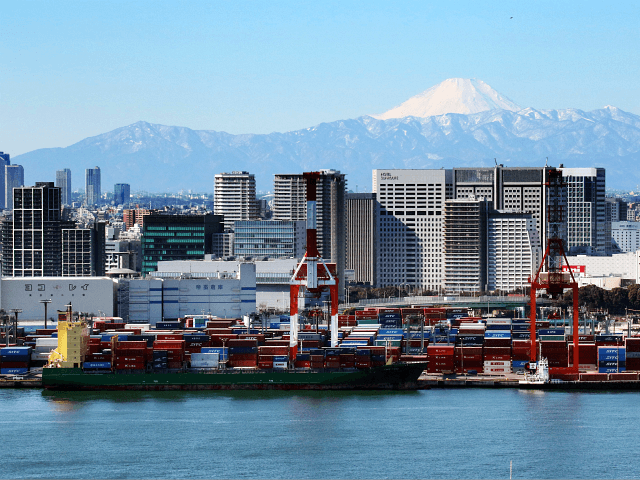Japan has finalised a long-delayed free trade agreement with the European Union — without having to join the bloc’s Customs Union, submit to its Free Movement immigration regime, or pay it tens of billions of euros.
While the EU has long since moved on from the days when it was supposed to be “trade bloc” — for example, by taking control of national fishing grounds and forming joint police, intelligence, and military bodies — it is still at root a Customs Union.
The bloc levies a Common External Tariff on all countries it has not negotiated a trade pact with, either individually or through organisations such as the European Economic Area (EEA), and forbids member-states from striking their own bilateral agreements or even casting independent votes on world trade bodies such as the WTO and UNECE.
In the United Kingdom, activists and politicians loyal to the EU have often downplayed the disadvantages this entails. They note the country is unable to sign deals with either the United States or its historic partners in the Commonwealth of Nations, for example, which dampens commercial opportunities and increasing the cost of imports for consumers.
Europhiles highlight both the bloc’s “clout” on the world stage, and suggest that a UK-EU deal would not be possible without the sort of punishing conditions attached to the “worst deal in history” which Theresa May has negotiated with it.
Evidence of the EU using its supposed economic “clout” is scant, however, for while its has negotiated a large number of trade deals they are almost all with fairly minor economies. Fully independent countries such as Switzerland, Singapore, and Chile have all secured trade agreements worth trillions more than the EU’s, in terms of the aggregate GDP of the countries involved.
An exception was South Korea, joined more recently by Canada, and now, most recent of all, Japan — although this presents further difficulties for British Remainers, as it appears to give the lie to claims it is not possible to conclude a trade agreement with the EU without accepting its rules or adhering to its Free Movement migration regime.
The EU-Japan deal — pushed along to a large extent by British negotiators — will “tak[e] tariffs down to zero in virtually the entire economy” with few of the sovereignty-constraining restrictions envisaged in Theresa May’s Withdrawal Agreement.
Some have attempted to argue that Brexit will see the British revert back to World Trade Organization trade arrangement with Japan — “No Deal” rules — but the Japanese government have already ruled this out, saying they will adopt a British-Japanese deal with identical terms immediately.
Others have suggested that Japan is a larger economy that Britain — but it is also far less significant to the EU’s economy than the United Kingdom, which will become the bloc’s number one export market after Brexit.

COMMENTS
Please let us know if you're having issues with commenting.